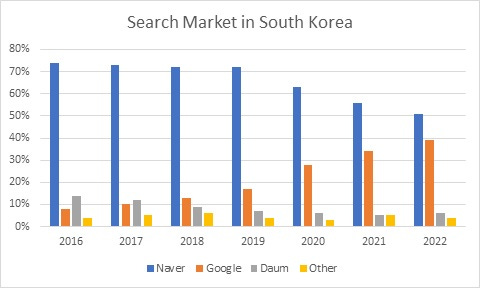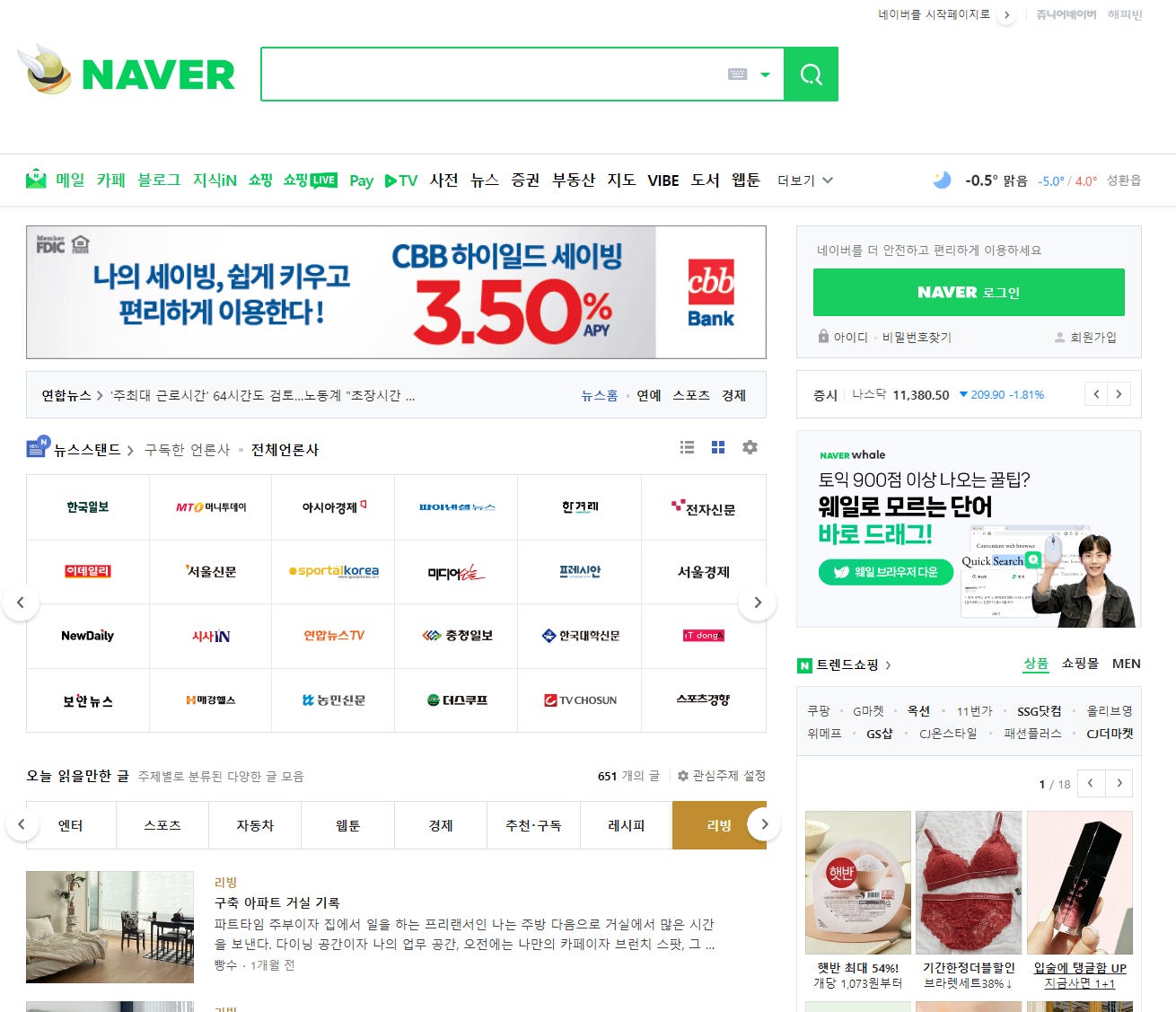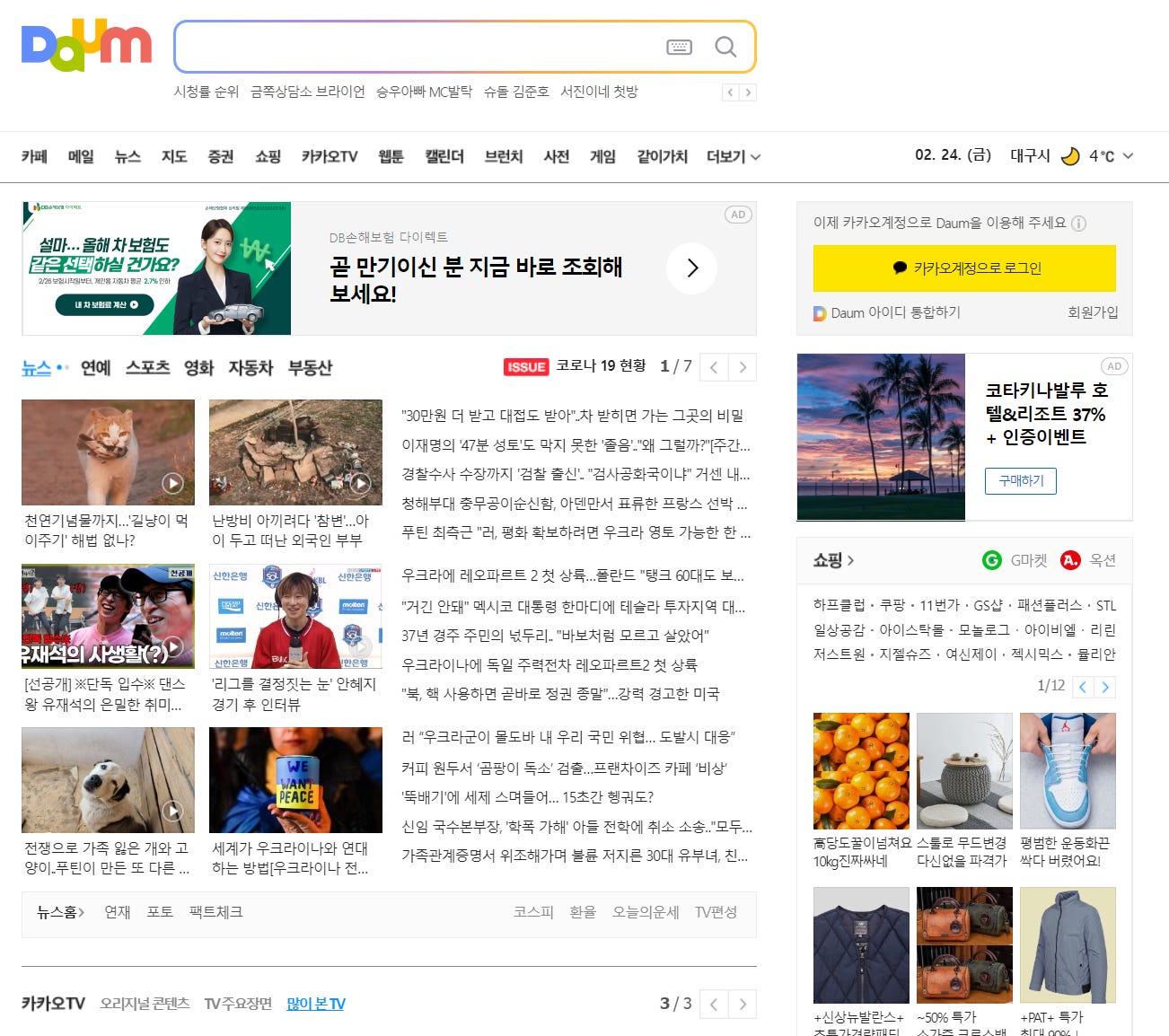Why Google Struggles in Korea
(Ok, Google’s not struggling in Korea. It’s a solid number 2. And this is more of a “hmm-that’s-an-interesting-perspective” post, not the usual “information-about-Korea” post.)
I was having lunch with an old college friend the other day and he asked me if I had tried using ChatGPT. I said no, but I had heard about how it was going to kill Google. Not an outright programmer, but as a financial analyst who does a lot of coding for one of the 10 largest companies in the US that he works for, he replied, no, it’s not going to kill it, but Google’s in trouble. Whoa… Quite a statement, from a guy who is understated about everything.
As everyone knows, Google has the death grip on the internet search market everywhere in the world. Except in 4 countries—China, North Korea, Russia, and South Korea. Which one of the four does not belong in this group?
I’ve read a couple of articles and research papers regarding this very topic but nothing really resonated with me. They were mostly talking about;
how the Korean government wouldn’t let Google use the sensitive data for its maps that’s to be stored in servers outside of South Korea, thus making Google maps “less reliable” than other Korean companies.
unfounded accusations about the Korean government restricting access to information for Google.
something about the Korean taxation system.
how Google was fined by the Korean government for abusing their dominant position.
I’ve used Google map in Korea and it works just fine. I’ve read about people’s complaints about how Google map yields driving directions that are (get this) 1 stinking minute longer than the Naver map does. Apple’s map service in Korea, however, is a different story all together. And restricting access for Google is plain ridiculous. Naver and Daum simply show more relevant information on one page about your search words than Google, probably benefitted by the same language algorithm and culture (i.e. how Koreans like to consume information).
(I wish I could show sample results from Google, Naver, and Daum on a certain keyword but I can’t because of my Los Angeles location. I get vastly different search results from all 3 sites from what I would get if I were in Seoul.)
I just don’t see how points number 3 and 4 are relevant in this discussion—neither has anything to do with how Koreans use information technology and Google has those problems (tax issues + abusing their power) everywhere else in the world!
Slightly off topic, but when Google appeased the Chinese government by agreeing to censor its search results and content a few years ago, I thought it was the biggest chicken shit move I’ve seen in a long time.
But hey, anyone at Google, let alone its top decision makers, is googol times smarter than I will ever be, so who am I to judge? Whatever it takes to make that extra hundred billion in market capitalization, I guess…
Anyway, getting back to the topic of the day, I saw something on TV couple of years ago and thought it was the most intriguing perspective I’ve seen yet on the subject. I want to give proper credit to the person who said it, but for the life of me, I can’t remember who it was or what TV program it was.
I believe it was this guy but I’m not 100% sure. But then, he was quoting something he saw somewhere else too, so we’ll never know whose idea it was. Pictured here is Kim Sang-wook (김상욱), Professor of Physics (quantum mechanics) at Kyunghee University, and one of the well-known science communicators in Korea.
He (or, his source) thinks that Koreans prefer to use the Korean search websites such as Naver…
… and/or Daum because of what they’re used to in everyday life.
The following image is what a (fancy) Korean meal looks like. Take out a few things, and you have what’s called jib-bab (집밥, homemade meals). Everything is served all at once—rice, soup, main dish, kimchi, other banchans... This view is what Koreans are used to…
… whereas Google…
… excels at simplicity.
It’s easy to poopoo things like these, things that are not evidence-based but on instincts. But we’re talking about an important part of culture here, namely how people consume information. Or, to put it more simply, what people like.
As I’ve stated at the top, this is a something-to-think-about post, not what-is-or-isn’t-about-Korea post. With that, my personal preference is Daum, not Naver.








